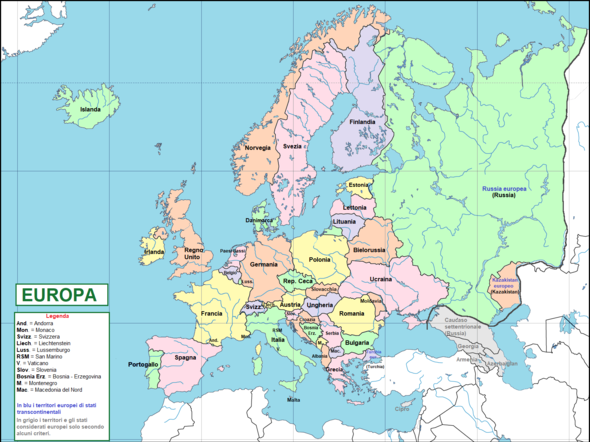The priority in the EU is work. But the spread is clear between Germany and southern countries

The priority in the EU is work. But the spread is clear between Germany and southern countries
EUROPEANS go to the polls united by the same conviction: unemployment is the first challenge for the Union. One European out of two thinks, one Italian out of two, and three out of five Greeks think so. Italians stand out on another front: as many as 38% of compatriots (compared to the average 22%) think that we should deal with the growth that is trudging. Because in addition to common concerns, there is also the “other spread” of Europe: the differential of hopes and expectations, the difference of optimism and opinions, between the North and the South of the continent.
As many as 75 percent of the Greek population interviewed for the “Future of Europe 2014” special Eurobarometer that European future imagines it to be much worse than the present.
Once upon a time the happy European, at least of his work. It was 2006, in France the bogeyman of the “plombeur polonais”, the Polish plumber, was still agitated, and Europe had just paid the price of the French “no” to the European Constitution. Under the slogan “Future of Europe” the Union inaugurated special Eurobarometer surveys to understand how to win the trust of citizens. But the front pages of the newspapers were still virgins from the pounding nightmare of the spread and 84 out of 100 Europeans declared themselves “happy with their current job”.
Eight years later, unemployment is the main threat and in addition to the crisis in the markets, the Union must get out of the crisis of expectations and hopes. Always referring to the Eurobarometer data, Germany was the least interested in unemployment two years ago (29% of Germans interviewed considered it the priority challenge for the EU) and the most involved in terms of public debt (61%). It continues to be the most in 2014, while data is reversed if we move to the South of Europe: the EU’s main challenge is unemployment for as many as 67% of Spaniards, 65% of Greeks and Portuguese, on 52 % of Italians, and only 37% of Germans.
The issue of public debt is at the top of the priorities for only a quarter of Italians and one third of Greeks, but for one German out of two. As for priorities and expectations, the highest “spread” is for Italy on the growth front: as many as 38% of Italians, despite the European average of 22%, assign a priority to insufficient economic growth as a challenge for ‘Europe.
In any case, the trend is common and clear: when asked about the main challenge for the Union, in 2014, 53% of Europeans respond that it is the lack of work. Speaking of work, leafing through another Europe-based survey and referring to just last April, the one on “Working conditions”, the ratio between those who consider them positive in their own country is about 1 in 1 if we talk about Europeans in general, but becomes 1 in 4 for Italians, up to the apex of “negativity” in Greece: only 1 Greek out of 6 expresses positive judgment.
And the same kind of trend also emerges when assessing the trend over the last 5 years: for as many as 85 percent of Italians things have worsened over time. Moreover, the Eurobarometer number 80 referred to autumn 2013 told us of an Italy in which unemployment is the main problem according to citizens, who blamed Europe for not doing enough. Already a year ago, according to surveys, faced with the Italian and European emergency, they reproached the EU for not doing what it should have done.
A discomfort that is also reflected in a “spread” of representation: almost 80% of respondents in Italy believed that their opinions are not represented in the EU, a figure that is growing compared to the previous report. The Union does not go in the right direction (55% of Italian respondents say so in 2013) and the pessimism about the EU is growing (52% against 40% who say they are optimistic). Contrary to the European average: 51% optimistic.
Data on which we should reflect when we talk about disaffection with Europe. Also because on the subject of Union prerogatives, while the average of Europeans identifies it with economic power (33%) and with respect for democratic values (31%), today “29%” of Greeks is the one to answer “none” 18% of Portuguese, Slovenian and Spanish. There are many points of departure compared to the average of 10% percent. It’s the other spread, beauty.
(09 May 2014)


